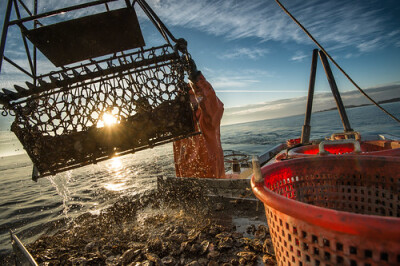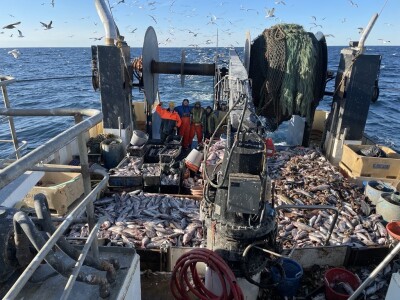The acidification of the ocean expected as seawater absorbs increasing amounts of carbon dioxide from the atmosphere will reverberate through the West Coast’s marine food web, but not necessarily in the ways you might expect, new research shows.
Dungeness crabs, for example, will likely suffer as their food sources decline. Dungeness crab fisheries valued at about $220 million annually may face a strong downturn over the next 50 years, according to the research published Jan. 12 in the journal Global Change Biology. But pteropods and copepods, tiny marine organisms with shells that are vulnerable to acidification, will likely experience only a slight overall decline because they are prolific enough to offset much of the impact, the study found.
Marine mammals and seabirds are less likely to be affected by ocean acidification, the study found.
“What stands out is that some groups you’d expect to do poorly don’t necessarily do so badly – that’s probably the most important takeaway here,” said Kristin Marshall, lead author of the study who pursued the research as a postdoctoral researcher at the University of Washington and NOAA Fisheries’ Northwest Fisheries Science Center. “This is a testament in part to the system’s resilience to these projected impacts. That’s sort of the silver lining of what we found.”






